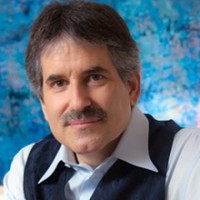Today is Martin Luther King’s birthday.
This great soul was a visionary. What is a visionary? Visionaries are those rare and inspired individuals who see great promise and imminent potentials for human consciousness and culture that most of us haven’t even begun to imagine yet. They see far beyond the present to a future that has yet to be created. For them, in a sense, that future already exists because their awareness is illuminated by inspiring and compelling images of the possible. Unless we, like Dr. King and other great spiritually awakened beings, invoke that same capacity to see and intuit beyond where we already have come, it is unlikely that our lives will be expressions of anything other than the status quo.
I was recently a speaker at a conference organized around the work of the great contemporary American philosopher Ken Wilber, known for boldly attempting to integrate all human knowledge into one coherent philosophical system. He is also known for the sheer volume of his work (his eight-volume Collected Works have been published in his own lifetime.) At one point during the conference, he was asked about his own creative process and he described how when he was a young man, he would get up at 3 AM every day and write for twelve hours straight without stopping, not even for food or to brush his teeth. It is difficult to imagine what would compel a human being to drive themselves that hard without being in touch with a vision that is inspiring them to reach way beyond the norm.
Dr. King, like Mahatma Gandhi before him, knew that his brave and heroic public challenge to racism and segregation would very likely lead to his assassination. But his vision of the possible—“I have seen the mountaintop”—drove him to keep pushing against all odds. A visionary is one who is no longer merely living to get and to have for him or herself, or tenaciously trying to preserve and protect what has already been. Visionaries are living for what has not yet occurred because their attention is riveted by the promise of the possible—that future is already radiant and alive in the field of their imagination. Because they experience that future—and feel its promise on a daily basis—they live in a state of perpetual discontent, simultaneously deeply inspired and ever-unsatisfied. How many of us have the courage and the heart to live that way? To live for the future like those great souls who have given rise to the higher values of our shared culture means we must be willing to sacrifice a perennial illusion. That illusion is the promise of deep and abiding contentment in the present moment unsupported by the liberating power of transcendent ideals or aspirations. This is an empty promise that we keep alive by continually hoping to find happiness through the gratification of our personal desires and by knowingly or unknowingly allowing ourselves to conform to the superficial values of our restless and confused culture.
In our postmodern era—“the age of the individual”—spirituality tends to be more about “me” and “my happiness” than where we are going and what it’s going to take to get there. I think we forget that our spiritual heroes were almost always brave souls who were willing to make the greatest sacrifices because of what they saw in the eye of their spiritual intuition—their vision of the possible. Without awakening to a powerful and inspired vision of what our shared world could be, I wonder if it’s possible to experience true happiness for more than a fleeting instant? Two and a half thousand years ago, the Buddha told us that everything is changing all the time, and if we want to be enlightened beings, we mustn’t allow ourselves to be attached to anything other than that ungraspable emptiness that is the very ground of reality itself. But now, in the twenty-first century, what if, instead, we allow ourselves to become attached to a glorious and inspired vision of the possible, one that lies always beyond our grasp? One that is always pulling us beyond the present moment and beyond ourselves, to an ever-greater perfection at which, paradoxically, we will never ultimately arrive.
In an evolving universe, the goalposts are always moving forward, always moving upward. Great souls and inspired visionaries change and improve and enlighten the world because their attention is always riveted to those goalposts. That’s a new way to understand the traditional spiritual ideal of being “in the world but not of it.” It means we are very much in the world of time, space, and location but the attention of our inner eye, heart, and mind is utterly entranced by what lies far, far beyond it.
Dr. King’s infectious joy, compassion, and deep love for humanity was not only the expression of his “self actualization” as an individual, but more importantly, it was the reflection of what he could see for all of us in a future that hadn’t arrived yet. Just imagine how much love we would experience for each other and for our world in the present moment if our attention was illuminated by and focused upon what was possible in our future.
It’s not difficult to complain or feel overwhelmed by the challenges that we face as individuals and as a global culture. But how many of us are willing to stretch and reach beyond our normal boundaries in order to catalyze genuine breakthroughs to new orders of possibility and potential that most people can’t begin to imagine? Spiritual development in our brave new world might need to become less about being and more about seeing—seeing and imagining what’s possible, just like Dr. King did. And by having the courage to allow that vision to awaken us from the slumber of stagnation and small-mindedness, we can reach without restriction for a better world.






Read 4 comments and reply